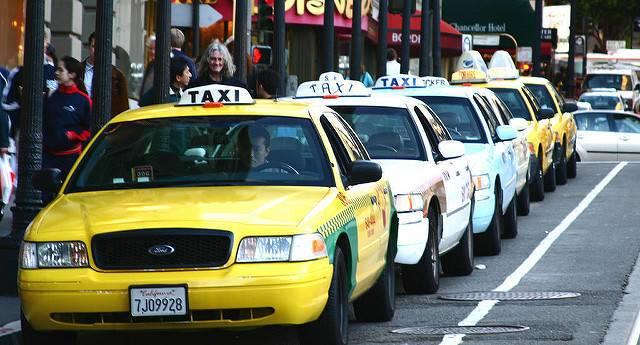
Taxi and limousine companies have been losing their shirts in recent years as Uber and Lyft enjoyed a surge in popularity and ridership across U.S. cities. But the taxi and livery industry is pushing back hard, in part by highlighting the regulatory burdens imposed on their drivers, while Uber and Lyft drivers rarely go through the same level of scrutiny.
According to “Who’s Driving You?,” a self-described safety campaign sponsored by the Taxicab, Limousine & Paratransit Association (TLPA), Massachusetts offers evidence of what could go wrong if ridesharing drivers are not held to the same rules as limousine and taxi drivers. The TLPA has touted local media reports in the Boston area that have highlighted the number of Lyft and Uber drives who were denied approval to drive for those ridesharing companies.
The Department of Public Utilities in Massachusetts found that over 122,000 drivers contracting with Uber and Lyft were submitted to background checks this year. To date, 12,735, or over 10 percent, were denied approval to work for those companies. Their offenses included sexual abuse and driving with a suspended license.
Those statistics were announced almost a year after Massachusetts Governor Charlie Baker signed a law that created a statewide framework for the oversight of drivers for all transportation network companies (TNCs). One reason the law was passed was to establish a consistent regulatory structure across the state, rather than a patchwork of rules that varied by municipalities. The law has been criticized from all directions, as some say the bill does not go far enough. Representatives of taxi and limousine companies, however, say that state-mandated background checks would create hardships for their employees. But overall, according to taxi companies, ridesharing companies have an unfair advantage as they are subjected to fewer rules.
Similar complaints about lax oversight of ridesharing companies’ drivers, as well as the dubious use of technology, have led to blowback against Uber and Lyft across the U.S., including cities such as Portland and Austin. Protests against Uber and Lyft have been commonplace in Portland; Austin residents simply voted them out.
While Massachusetts companies and drivers argue over how their industry should be monitored and regulated in their home state, TLPA has continued to fight Uber and Lyft with its own publicity campaign. Those tactics include a detailed list of crime and “serious” incidents linked to those companies’ drivers. Visitors to the site can sort out incidents ranging from sexual assaults to kidnappings; TLPA is also keeping a count of the deaths attributed to these companies – that number currently stands at 28.
In the meantime, TLPA has continued the drumbeat against ridesharing companies by linking lax oversight to traffic congestion. Riders have also been made aware of “fake Uber drivers,” who the TLPA says are a menace to customers, especially those needing such a service late at night.
Taxi companies have indeed suffered as ridesharing companies have become the preferred means of transport coast to coast. But as Forbes noted earlier this year, despite the controversies over the relationships drivers have with the ilk of Uber and Lyft, one study has shown while salaries for taxi drivers have declined approximately 10 percent the board, the number of self-employed drivers spiked by 50 percent.
The number of taxi rides have plummeted, however, in large cities such as San Francisco and Los Angeles as more consumers turn to ridesharing companies out of convenience and price. But as a Los Angeles Times report last year pointed out, while taxi drivers have taken a financial hit, no local cab company has yet folded – though they have allies in Sacramento who are striving to make regulations and fees less burdensome for these firms so that they can survive.
Meanwhile, Massachusetts could very well serve as a model as to how to balance competition between old-school cab companies and startup ridesharing firms. “The safety and security of the riding public is our top priority, and I am pleased this agreement will set a national standard for the most comprehensive state background checks for TNC drivers in the country,” said Gov. Baker when he signed into law the state’s background check system last December. “With the signing of these agreements, consumers who take advantage of the innovative technology services provided by Transportation Network Companies can have confidence that the driver has undergone a thorough background check that includes both criminal and driving records.”
Image credit: Thomas Hawk/Flickr

Leon Kaye has written for 3p since 2010 and become executive editor in 2018. His previous work includes writing for the Guardian as well as other online and print publications. In addition, he's worked in sales executive roles within technology and financial research companies, as well as for a public relations firm, for which he consulted with one of the globe’s leading sustainability initiatives. Currently living in Central California, he’s traveled to 70-plus countries and has lived and worked in South Korea, the United Arab Emirates and Uruguay.
Leon’s an alum of Fresno State, the University of Maryland, Baltimore County and the University of Southern California's Marshall Business School. He enjoys traveling abroad as well as exploring California’s Central Coast and the Sierra Nevadas.














